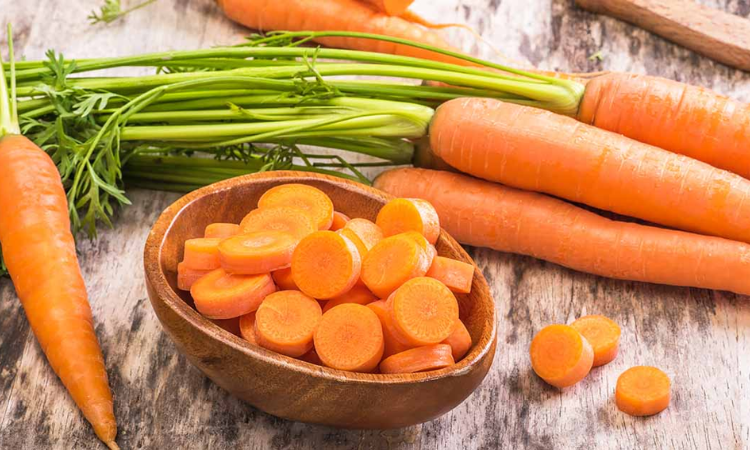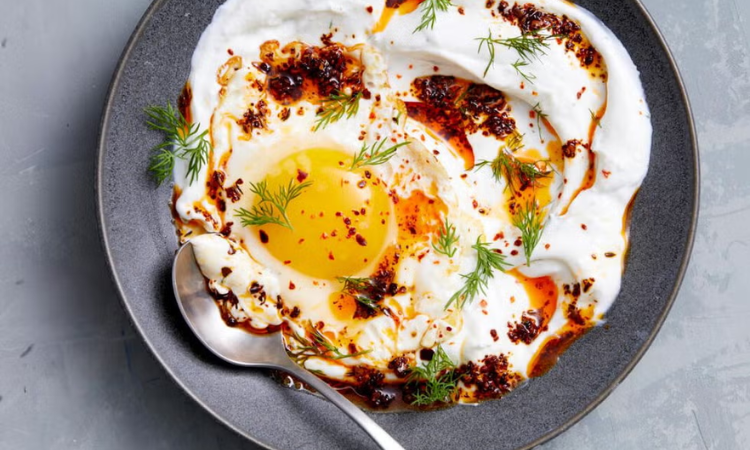As a nutrition coach with over seven years of experience, I’ve seen countless foods come and go in clients’ diets, but one ingredient consistently stands out: the humble carrot. Low in calories, packed with nutrients, and endlessly versatile, carrots are a weight-loss superstar. Whether you’re aiming to shed pounds or eat healthier, carrots can transform your meals. This guide explains why carrots are a must-have, their health benefits, and creative ways to add them to your diet.
Why Carrots Are Perfect for Weight Loss
Carrots are a dieter’s dream: a medium carrot (about 61 grams) has just 25 calories but delivers fiber, vitamins, and antioxidants that keep you full and energized. Their high fiber content slows digestion, curbing hunger, while their natural sweetness satisfies cravings without added sugars. I’ve seen clients reduce calorie intake effortlessly by swapping starchy carbs for carrots, all while enjoying flavorful meals.
Real-life example: My client, Lisa, struggled with evening snacking. Adding a side of roasted carrots to her dinner kept her full longer, cutting out high-calorie chips. She lost 12 pounds in two months, feeling satisfied and in control.
Why it matters: Carrots help you eat fewer calories without sacrificing portion size or flavor, making weight loss sustainable.
Nutritional Benefits of Carrots
A 1-cup serving of cooked carrots (about 156 grams) offers:
- Calories: ~55 calories
- Fiber: ~4.7 grams, promoting fullness and digestion
- Vitamin A: ~1,300 mcg (from beta-carotene), supporting vision and immunity
- Vitamin K: ~21 mcg, aiding bone health
- Potassium: ~366 mg, supporting heart health
- Antioxidants: Beta-carotene helps regulate blood sugar and fights inflammation
Carrots’ low glycemic impact stabilizes energy levels, preventing cravings that lead to overeating. Their nutrients make them a powerhouse for overall health.
Real-life example: Mark, a client with pre-diabetes, added shredded carrots to his lunches. The fiber helped stabilize his blood sugar, reducing energy crashes and supporting his weight loss of 10 pounds in six weeks.
How to Choose and Store Carrots
To get the most from carrots:
- Pick fresh: Choose firm, bright orange carrots without cracks. Baby carrots are convenient but may have less flavor.
- Store properly: Keep in the fridge in a perforated plastic bag for up to a month. Remove greens to prevent wilting.
- Organic vs. conventional: Both are nutritious; choose based on budget and preference.
- Pre-peeled caution: Pre-peeled carrots may lose some nutrients; whole carrots retain more.
Tip: Buy in bulk and store properly to always have carrots on hand for quick meals.
Creative Ways to Add Carrots to Your Diet
Carrots’ versatility makes them easy to incorporate into any meal. Their sweet flavor and satisfying texture work raw, cooked, or blended. Try these ideas:
- Raw: Shred into salads, wraps, or sandwiches for crunch.
- Cooked: Dice into rice, quinoa, or oatmeal for added nutrients.
- Roasted: Toss chunks with 1 tsp olive oil and herbs for a 100-calorie side.
- Blended: Puree into soups, sauces, or smoothies for creaminess.
- Baked: Add shredded carrots to muffins or cakes to cut sugar.
- As a carb swap: Grate into “carrot rice” for stir-fries or bowls (~35 calories per cup vs. ~200 for white rice).
Real-life example: Sarah, a busy mom, made carrot rice for her family’s stir-fry night. Her kids loved the mild flavor, and she cut calories without anyone noticing.
Carrot-Based Recipes for Low-Calorie Meals
Here are three simple, delicious recipes to showcase carrots’ versatility:
1. Carrot Rice Stir-Fry (~150 calories per serving, serves 4)
A low-carb alternative to rice, perfect with chicken or tofu.
- Ingredients: 4 cups grated carrots, 1 cup diced bell peppers, ½ cup diced onion, 1 Tbsp low-sodium soy sauce, 1 tsp olive oil, 1 tsp garlic powder
- Instructions:
- Grate carrots using a box grater or food processor.
- Heat olive oil in a skillet, sauté carrots, peppers, and onion for 8 minutes.
- Add soy sauce and garlic powder, cook for 2 more minutes.
- Serve with grilled protein or tofu.
- Tip: Prep carrot rice ahead for quick weeknight meals.
2. Carrot-Apple Muffins (~120 calories each, makes 12)
A healthy, sweet treat with less sugar.
- Ingredients: 1 cup grated carrots, 1 cup unsweetened applesauce, 1 cup whole-wheat flour, 1 egg, ¼ cup honey, 1 tsp baking powder, 1 tsp cinnamon, pinch of salt
- Instructions:
- Preheat oven to 350°F. Line a 12-cup muffin tin.
- Mix carrots, applesauce, egg, and honey in a bowl.
- Combine flour, baking powder, cinnamon, and salt; stir into wet ingredients.
- Divide batter among muffin cups. Bake for 20 minutes until set.
- Tip: Freeze extras for quick breakfasts.
3. Creamy Carrot Soup (~100 calories per serving, serves 4)
A cozy, low-calorie soup that’s easy to make.
- Ingredients: 4 cups sliced carrots, 1 cup diced onion, 4 cups low-sodium vegetable broth, ½ cup nonfat Greek yogurt, 1 tsp olive oil, 1 tsp thyme
- Instructions:
- Heat olive oil in a pot, sauté carrots and onion for 5 minutes.
- Add broth and thyme, simmer for 20 minutes until carrots are soft.
- Blend until smooth, stir in yogurt, and season to taste.
- Tip: Top with a sprinkle of herbs for extra flavor.
Tips for Using Carrots in Your Meals
- Start small: Add a handful of shredded carrots to existing dishes like salads or casseroles.
- Prep ahead: Grate or chop carrots on weekends for quick use.
- Use minimal fat: Roast or sauté with just 1 tsp oil to keep calories low.
- Experiment: Try carrots in sweet or savory dishes to find your favorites.
- Pair wisely: Combine with protein (e.g., chicken, tofu) for balanced meals.
Real-life example: John, a client, roasted carrots as a side instead of fries. The swap saved 150 calories per meal, helping him lose 8 pounds in a month while enjoying his food.
Why Carrots Are a Weight-Loss Superfood

Carrots’ low calories, high fiber, and natural sweetness make them ideal for weight loss. They replace high-calorie carbs, increase meal volume, and stabilize blood sugar, reducing cravings. Their versatility ensures you never get bored, from savory soups to sweet muffins. By adding carrots daily, you can cut calories effortlessly while boosting nutrition.
Why it matters: Carrots make healthy eating satisfying and sustainable, helping you reach your goals without feeling deprived.
Who Should Eat More Carrots?
Carrots benefit:
- Dieters: Low calories and high fiber support weight loss.
- Diabetics: Low glycemic impact stabilizes blood sugar.
- Busy people: Easy to prep and store for quick meals.
- Kids and picky eaters: Sweet flavor hides in smoothies or sauces.
- Anyone seeking better health: Nutrients like vitamin A and potassium boost immunity and heart health.
Caution: Consult a doctor if you have specific dietary restrictions or allergies.




